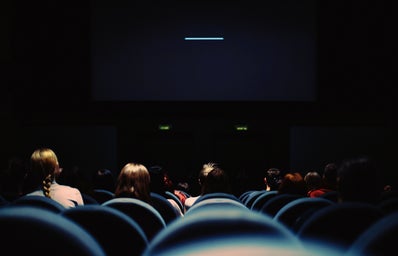Dune has always been one of my favorite novels. I’ll never forget cracking it open for the first time, seeing the index in the back, and thinking, “Wow. This is not what I expected at all.” However, I kept reading and I’m glad I did, because despite it being insanely confusing and insanely long, Dune tells the story of a world unlike any other, a story that revolutionized the science fiction genre as a whole. Before its publication in 1965, there had never been anything like it written.
The novel has all the elements of a great would-be film: a devoted fan base, an entire futuristic universe, a great story, and a main character who heavily resembles Timothee Chalamet. Additionally, because Dune is 412 pages of words like “Bene Gesserit” and “Kwisatz Haderach” which the reader has to look up in the index to understand, many people would rather watch the movie than read the book.
When Dennis Villaneuve’s version was announced, I was extremely excited. A new Dune movie (there was one made in 1984 that was considered to be a box office bomb) with Timothee Chalamet and Zendaya in the titular roles? It was a dream come true. And while they were both great as Paul Atreides and Chani respectively, the film was less than impressive.
Not to say it wasn’t great to watch. The visuals of the film are breathtaking, and they do an excellent job of bringing the worlds of Dune to life, from rainy Caladan to the dune itself, Arrakis. However, beautiful cinematography doesn’t make a movie, and the actual plot and characters of Dune were severely lacking.
The first part of the Dune novel is simply set up for the rest of the book and the rest of the Dune series (in case you didn’t know, Dune has multiple sequels and one of them involves Paul’s son becoming a sandworm. It doesn’t make sense to me, either). The movie reflects this, only depicting the Harkonnen attack on the Atreides and the ensuing battle, and ended with the introduction of Chani and the Fremen. However, with only the Harkonnen attack as the plot of the movie, Dune, which clocks at over two hours, is a very slow watch.
Dune has a star studded cast to add to its popularity, packed with A-listers from Jason Momoa to Rebecca Ferguson, but none of the characters besides Paul were really showcased. I especially hated how Lady Jessica (played by Rebecca Ferguson) was depicted in the film. Jessica was one of the strongest characters in the book, and one of the best, and only, female characters. In the film, her strength, resilience, and her Bene Gesserit powers were never really showcased. Josh Brolin’s Gurney Halleck and Jason Momoa’s Duncan Idaho were never given any distinguishing characteristics, and were fairly interchangeable. The primary stand out performers in my opinion were Timothee Chalamet, Oscar Isaac, who played Duke Leto, and Sharon Duncan-Brewster, who played Dr. Liet Kynes.
While the movie does a good job explaining the plot and complicated terms, it’s very obviously a set up for something much bigger which will occur in the already announced Dune Part 2. While this makes sense looking at the series as a whole, a set up movie isn’t exactly an exciting watch.
Despite the disappointments, I still plan on watching Dune Part 2 and have high hopes for it. Now that the world building is out of the way, hopefully the film will center around what made Dune really great: the dynamic story and characters.


